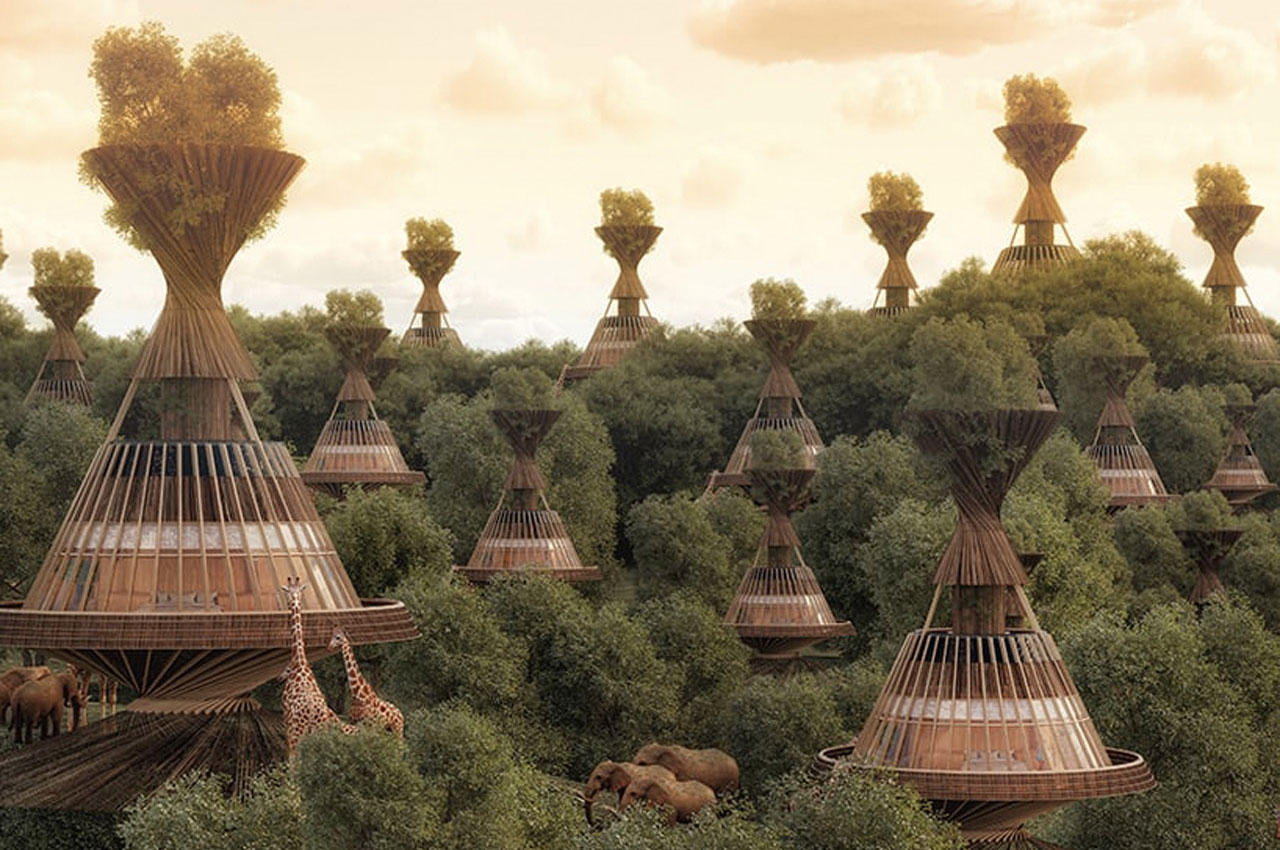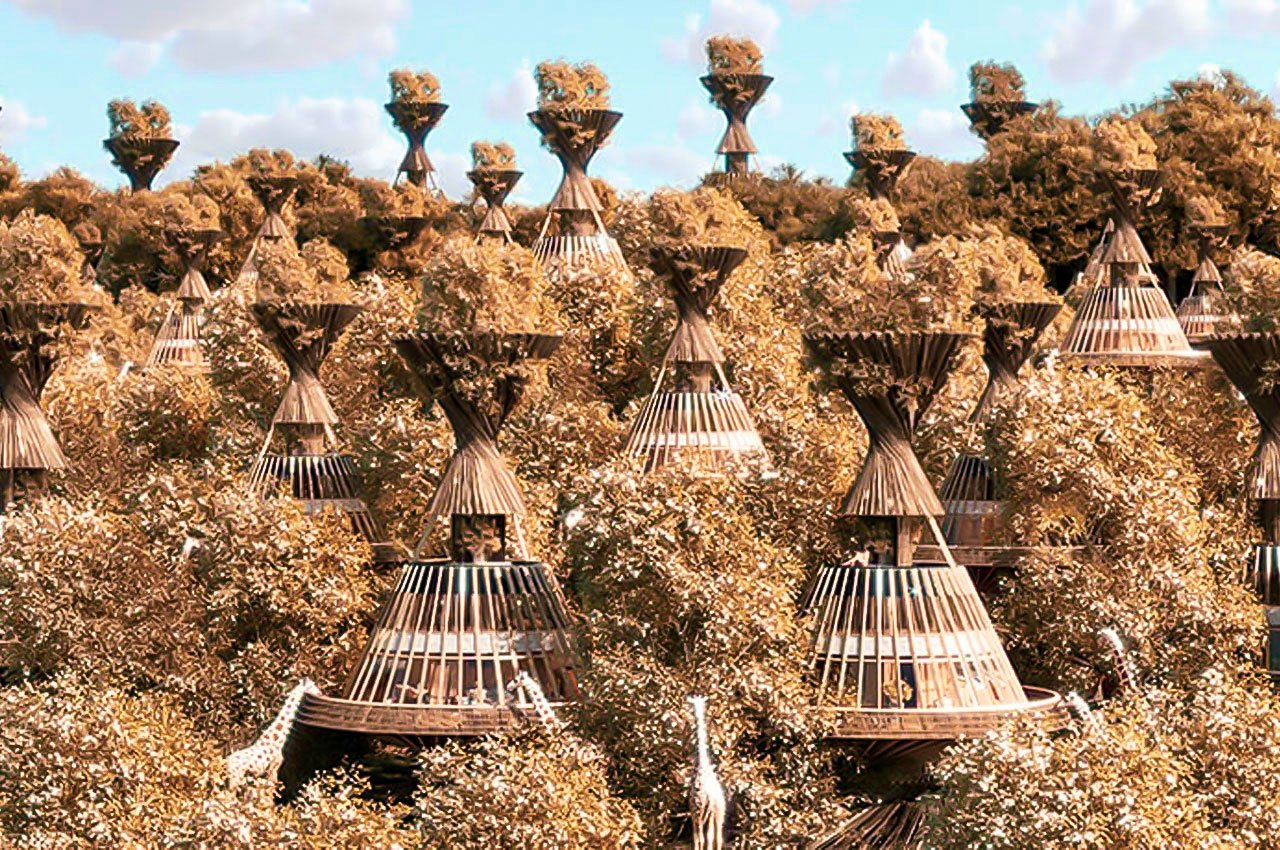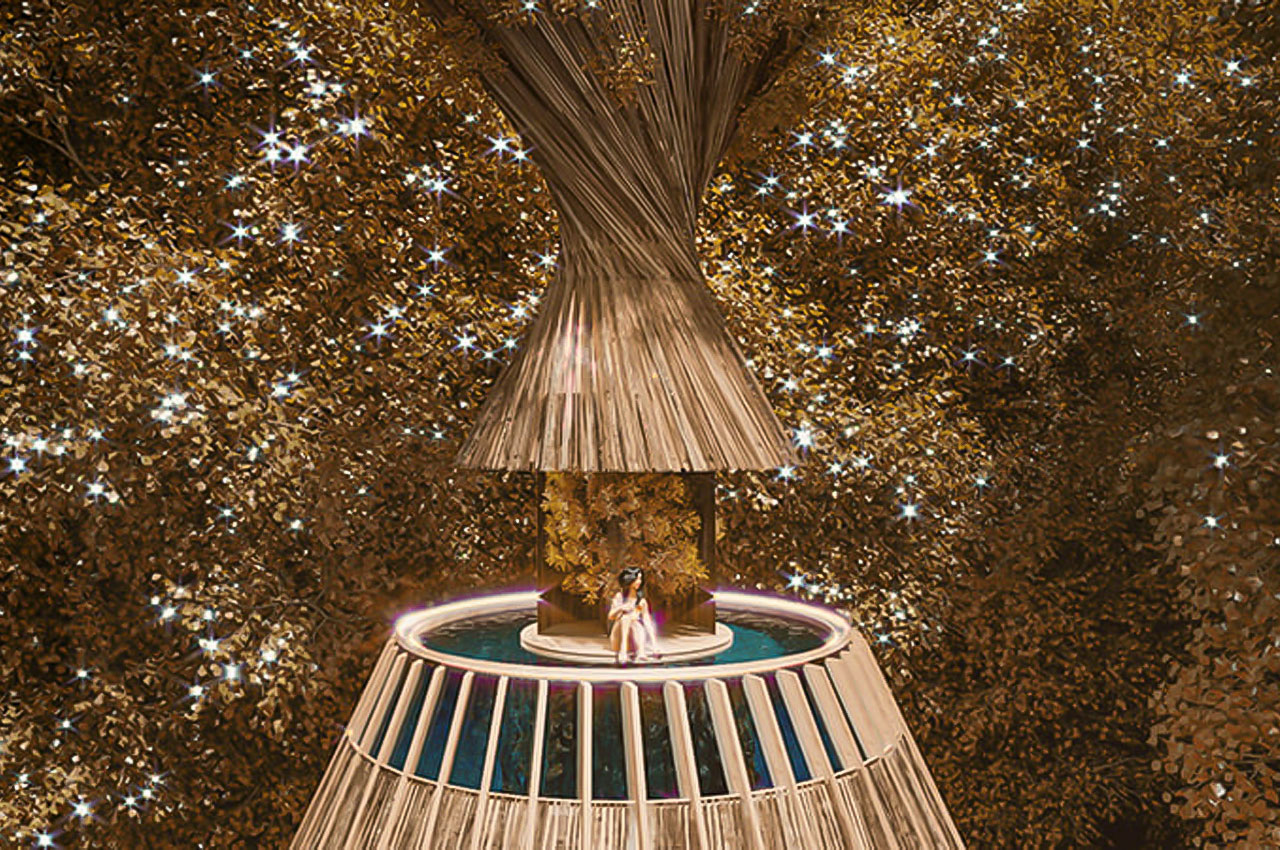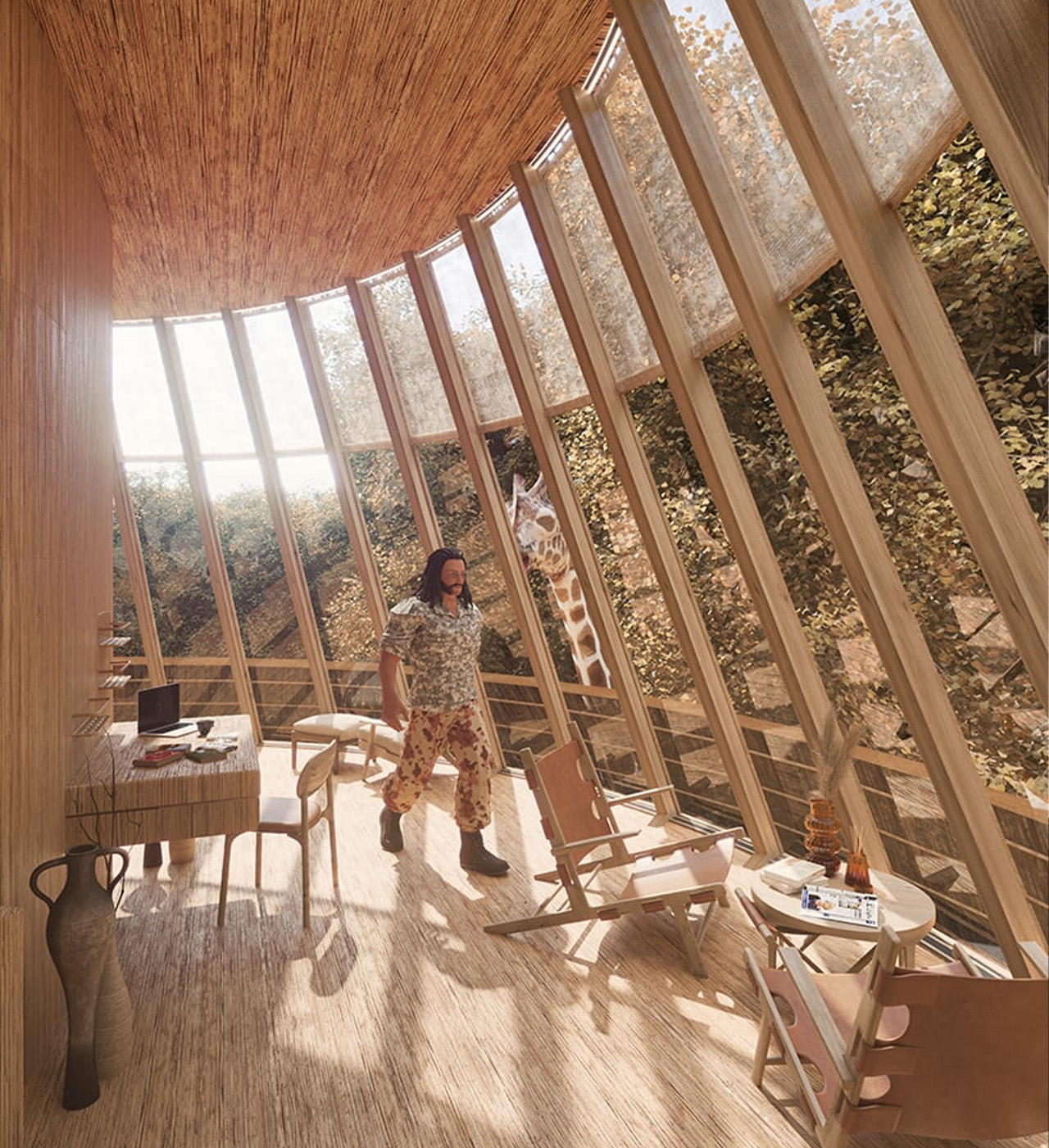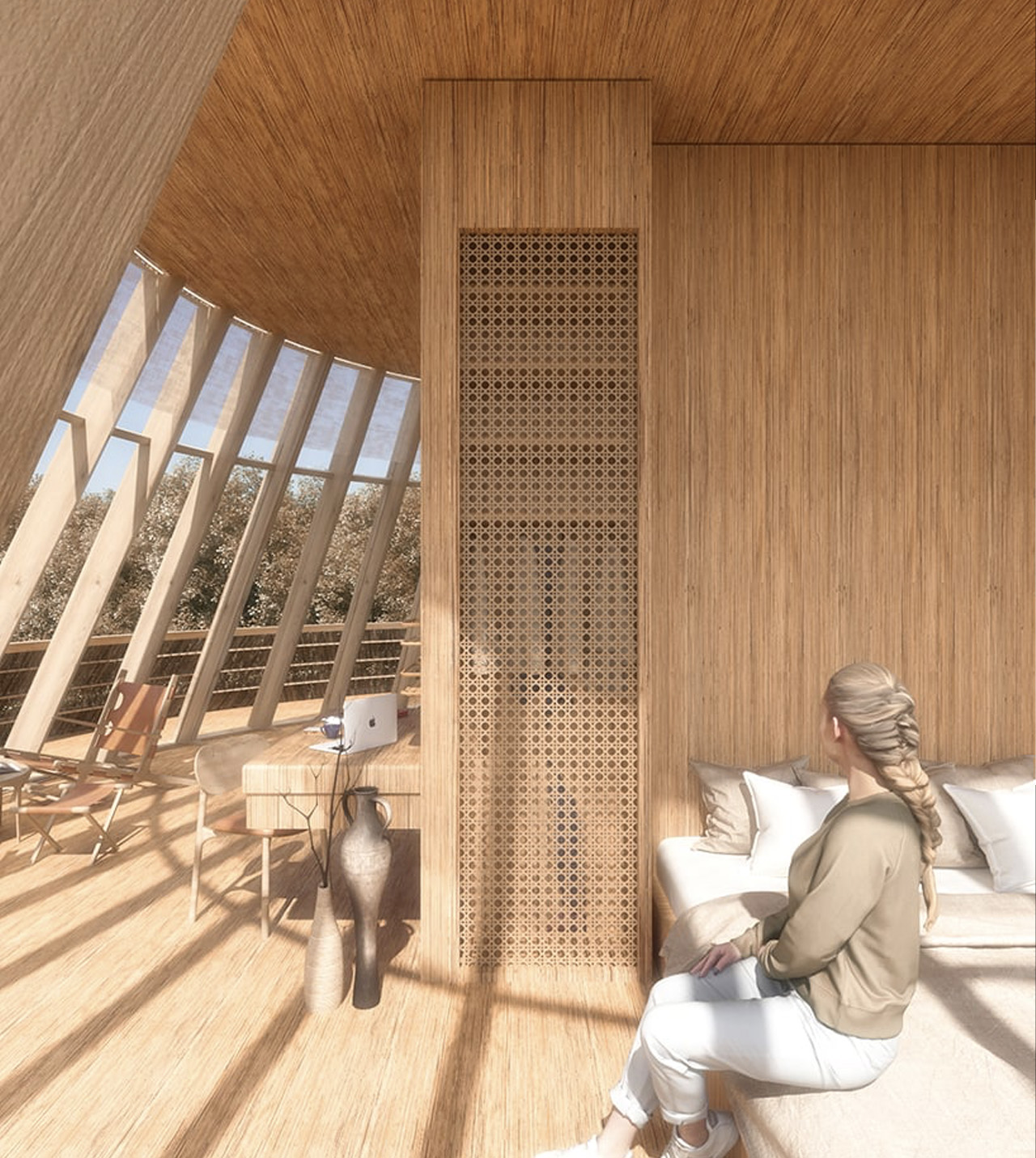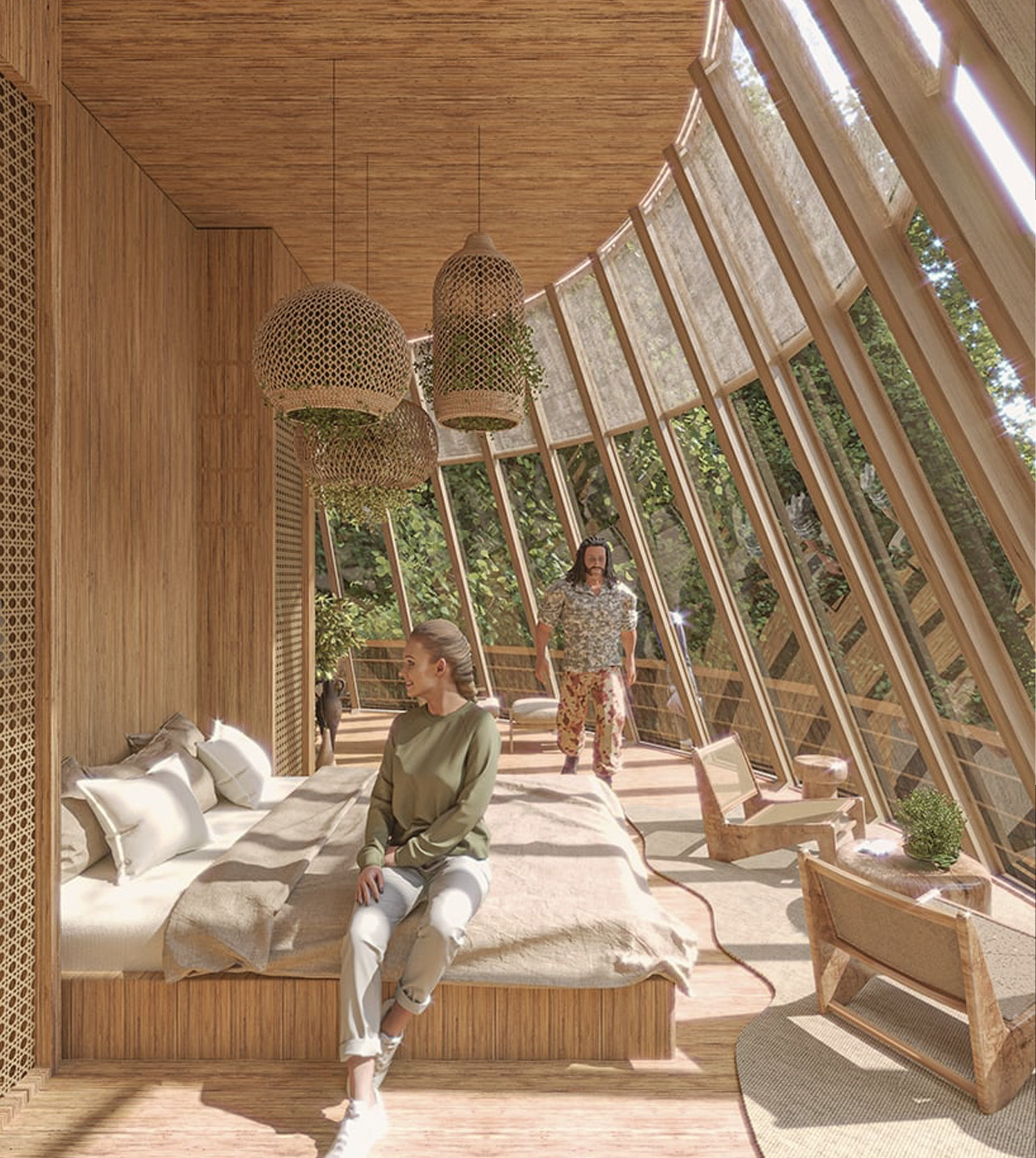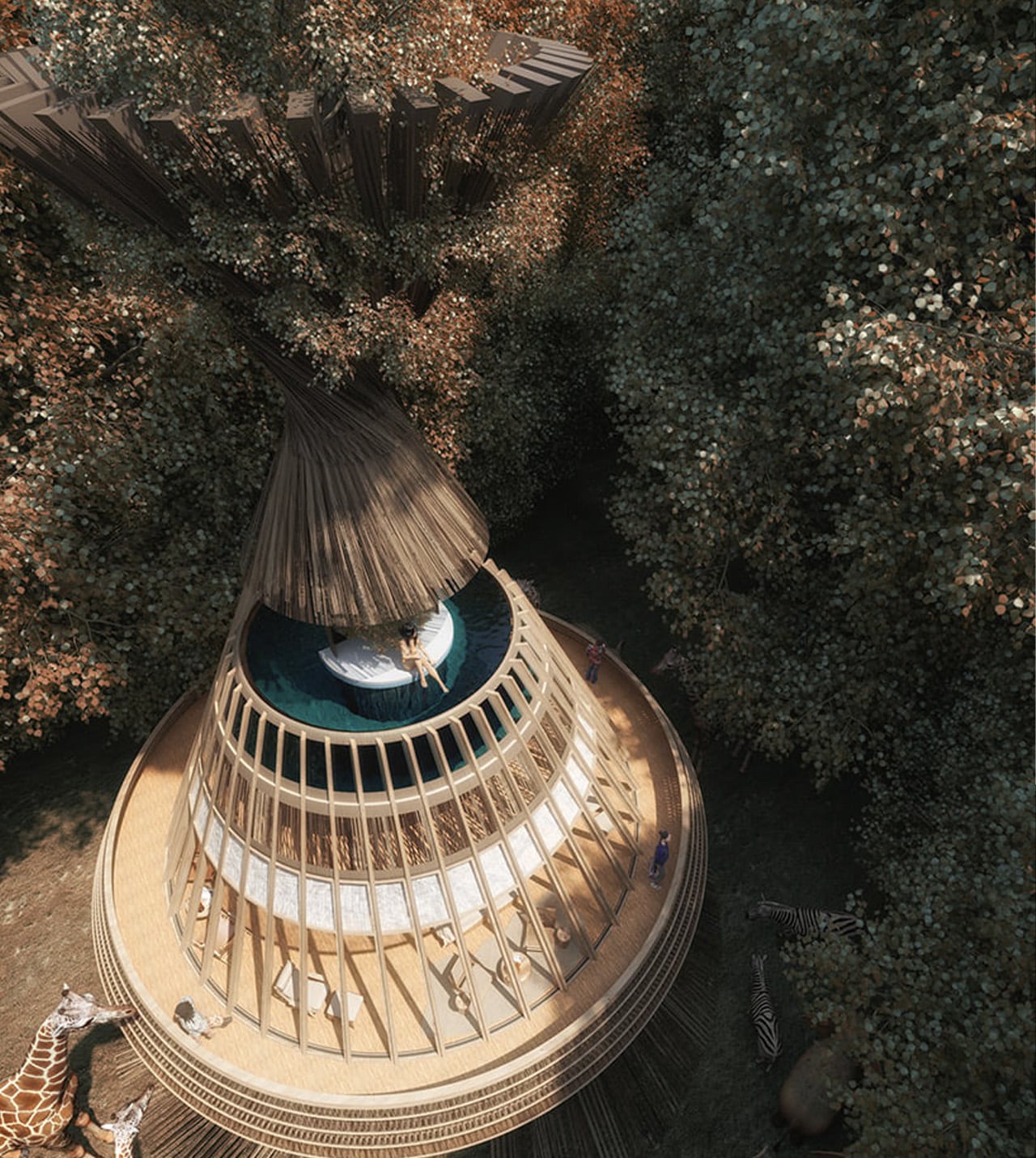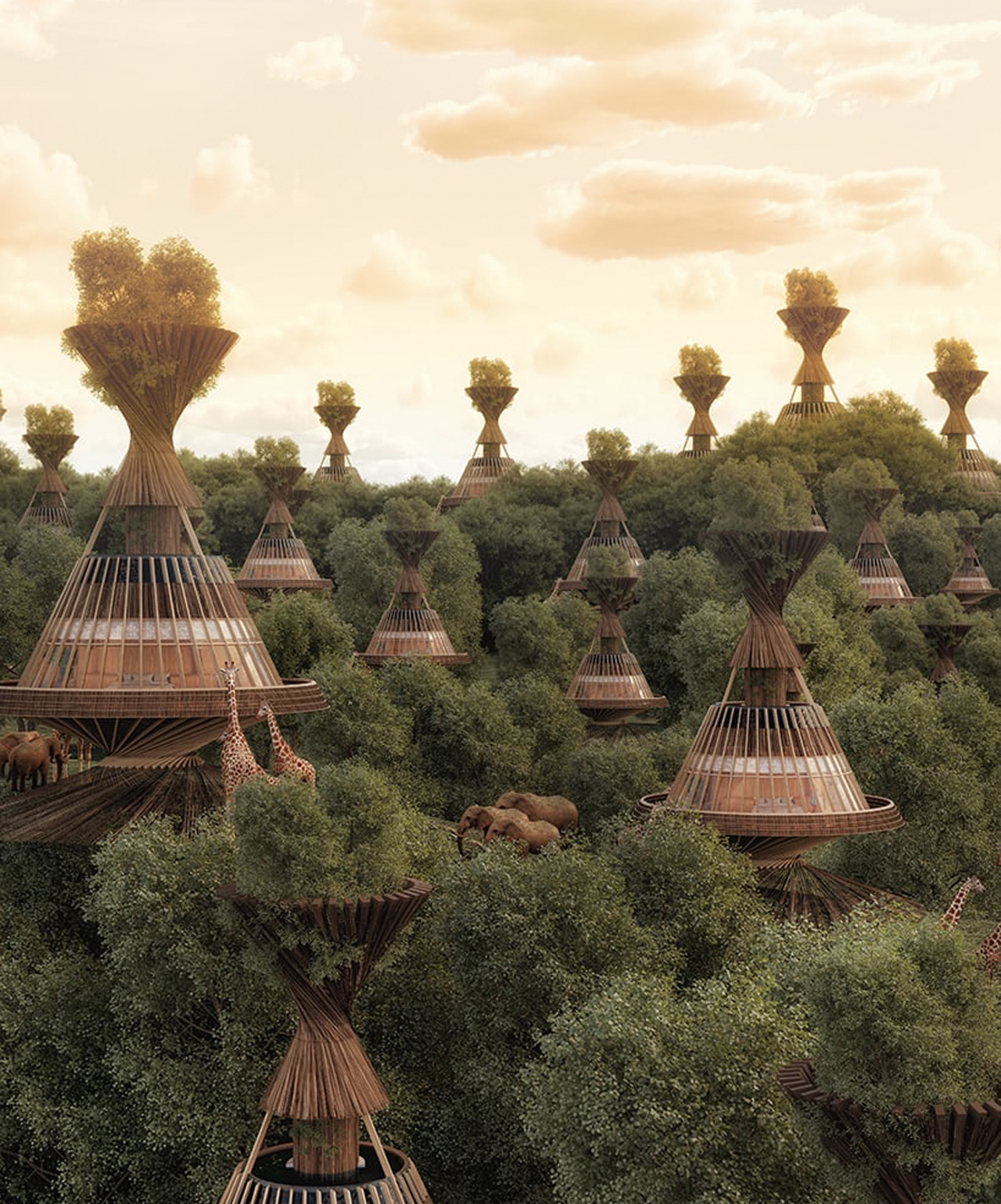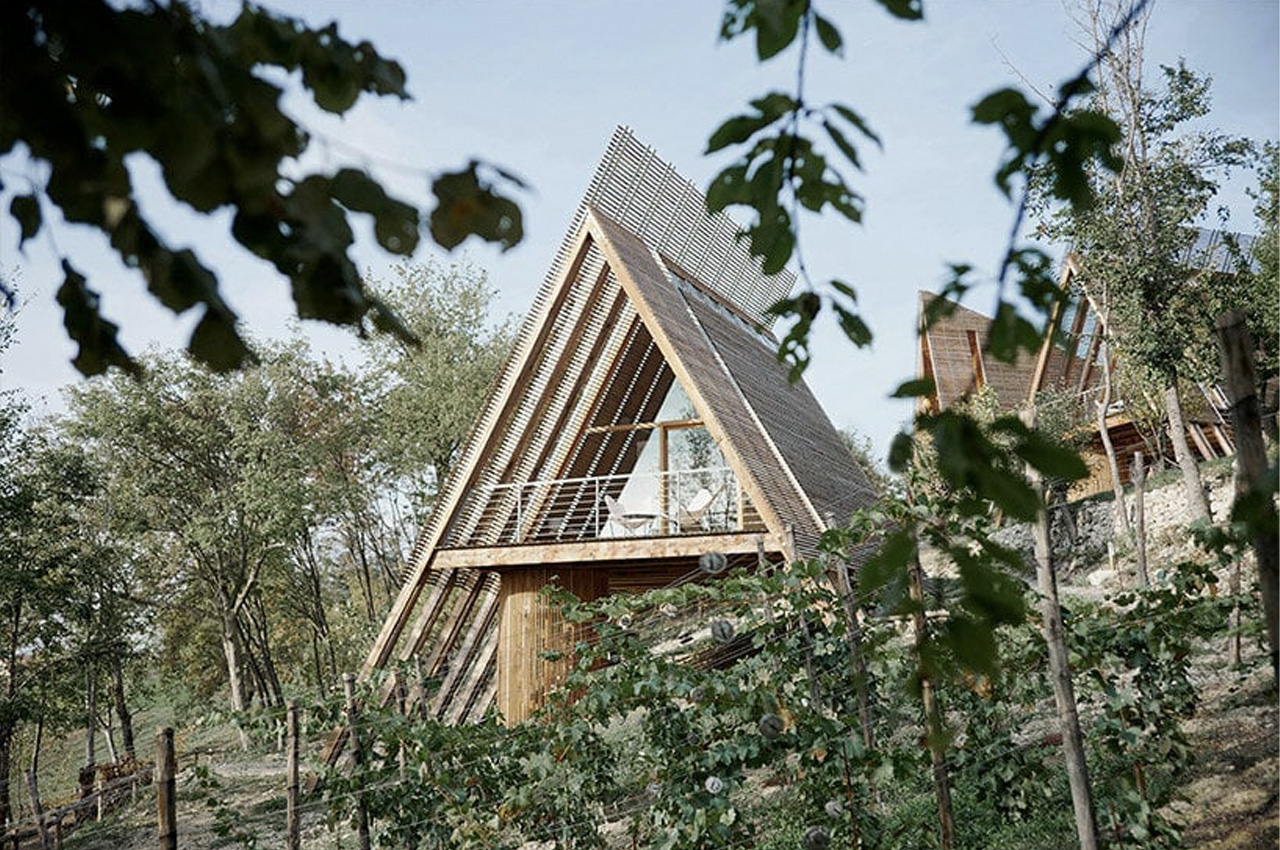
Nestled away in the center of Piedmont, Italy, surrounded by vineyards and woodlands is LILELO (Little Leisure Lodges). It includes a group of four adorable wooden cabins. The autonomous cabins are designed by the Paris-based architecture studio Atelier LAVIT. The cabins are inspired by traditional haystacks, creating a triangular silhouette, which is supported by a trunk-like base.
Designer: Atelier LAVIT
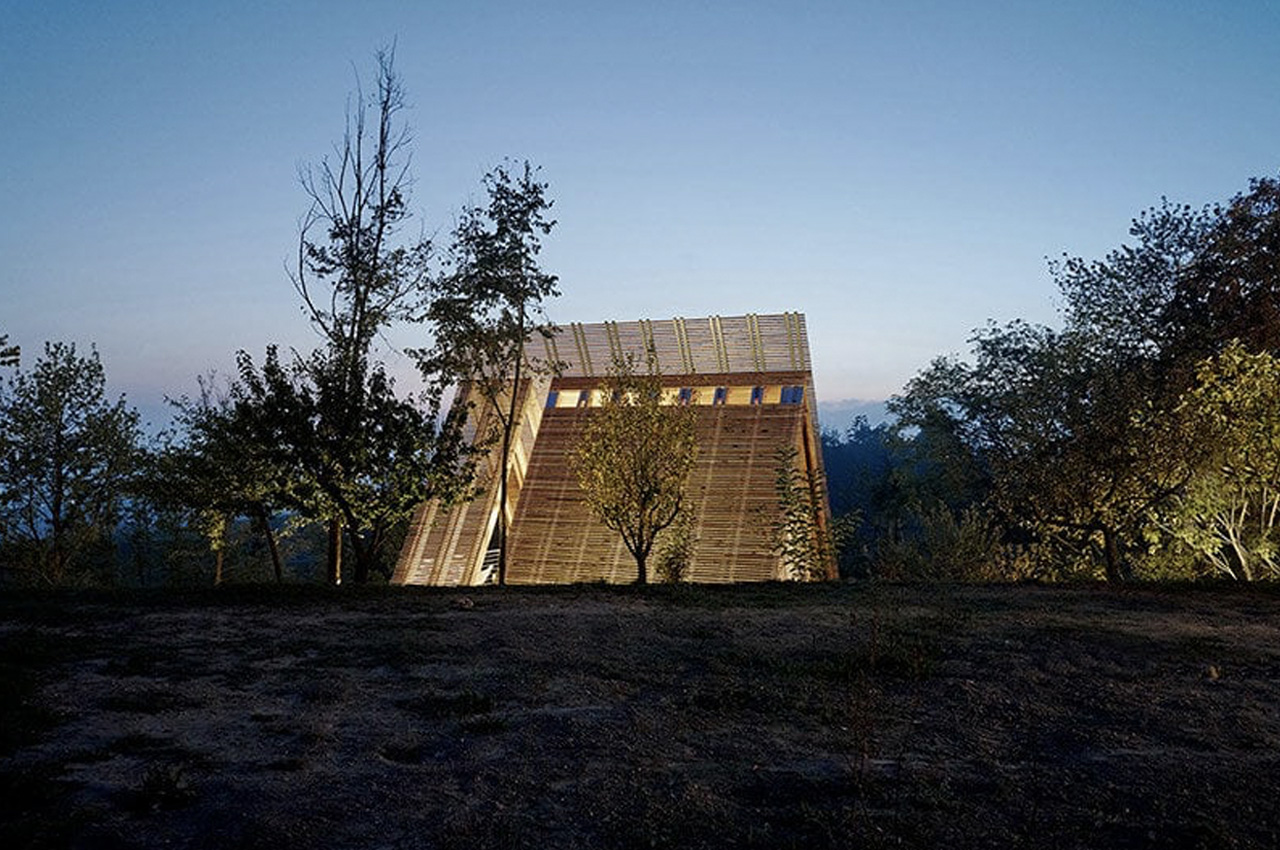
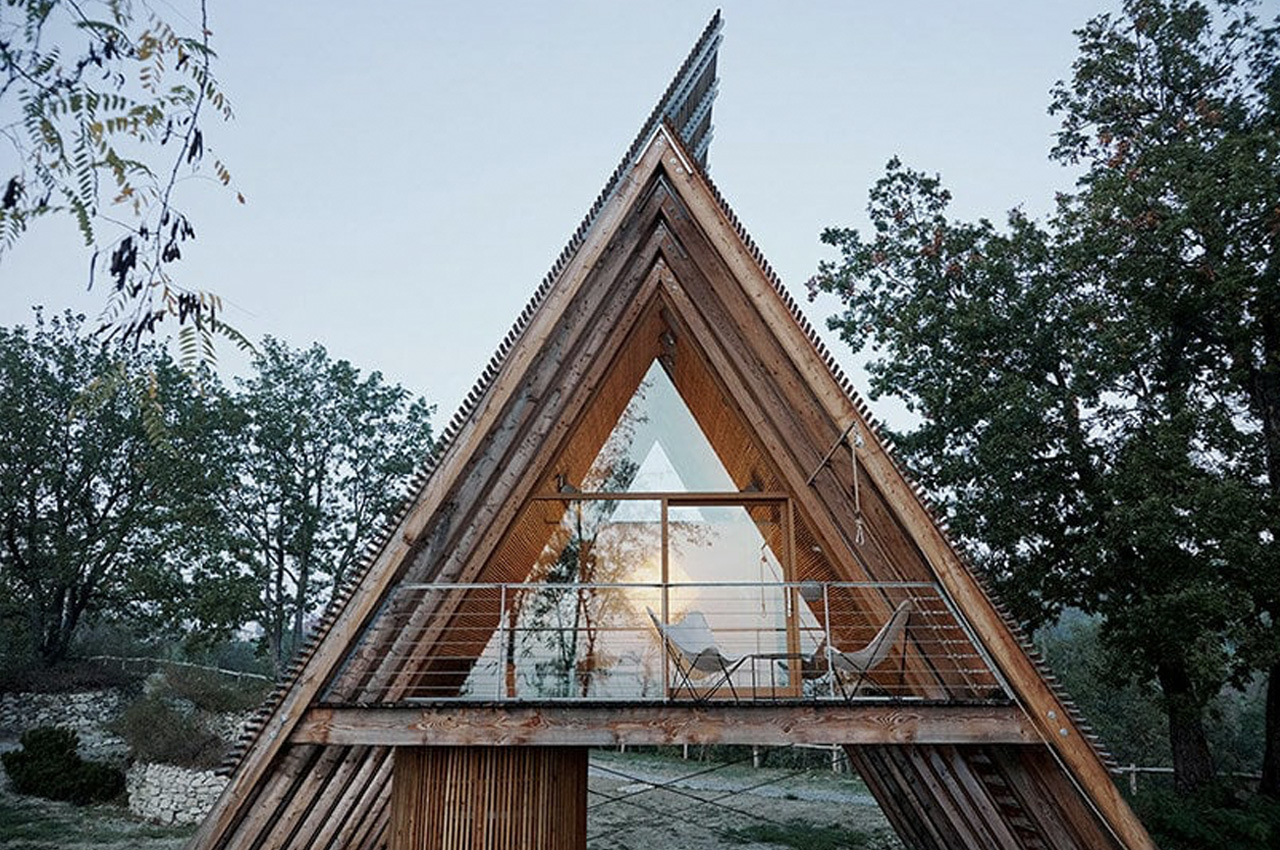
The cabins have been elevated off the ground, ensuring they don’t touch it, in an attempt to adopt a sustainable approach. This approach lays an emphasis on energy efficiency and eco-compatibility materiality. The elevated cabins ensure that there is minimal impact on the ground, while also beautifully complementing the sloping topography. The eco-cabins artfully merge with their surrounding, creating the impression that is it at one with nature around it.
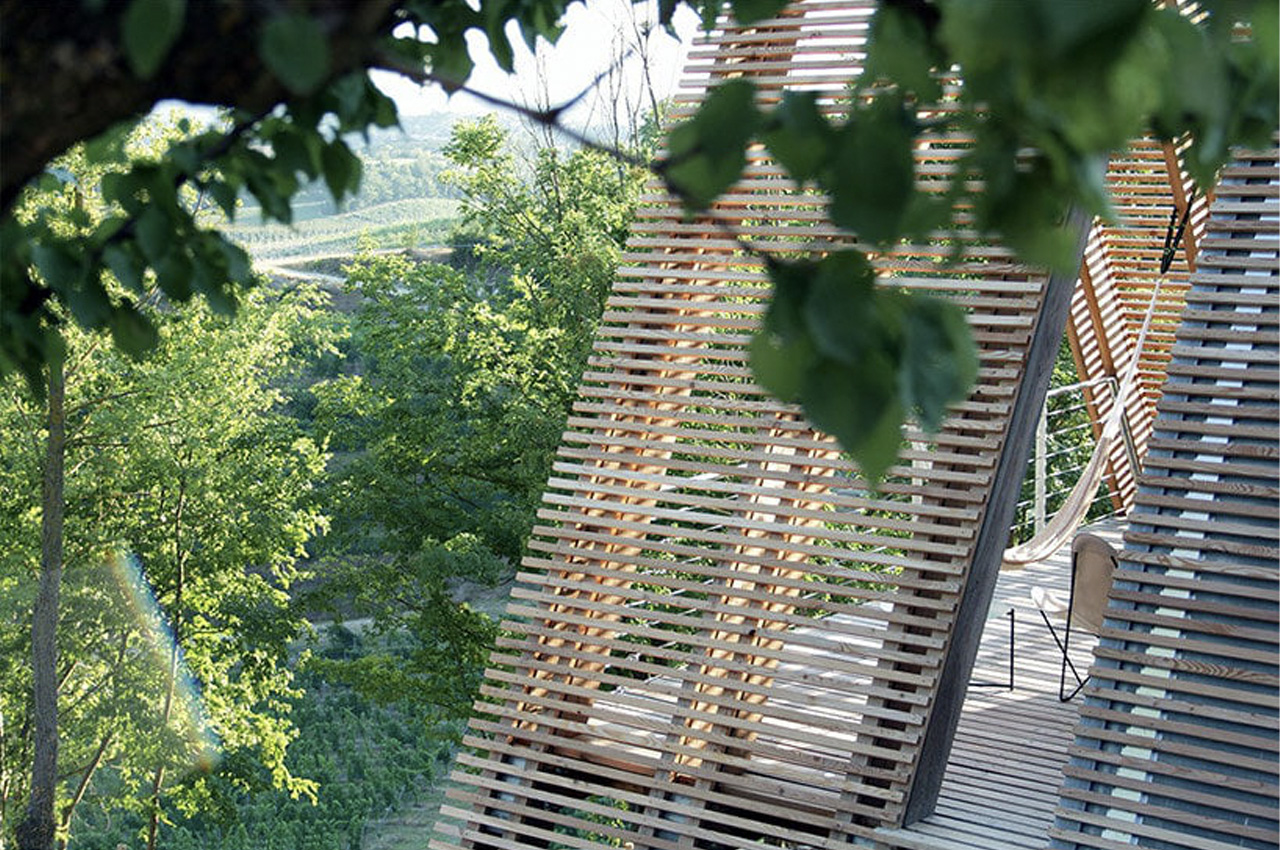
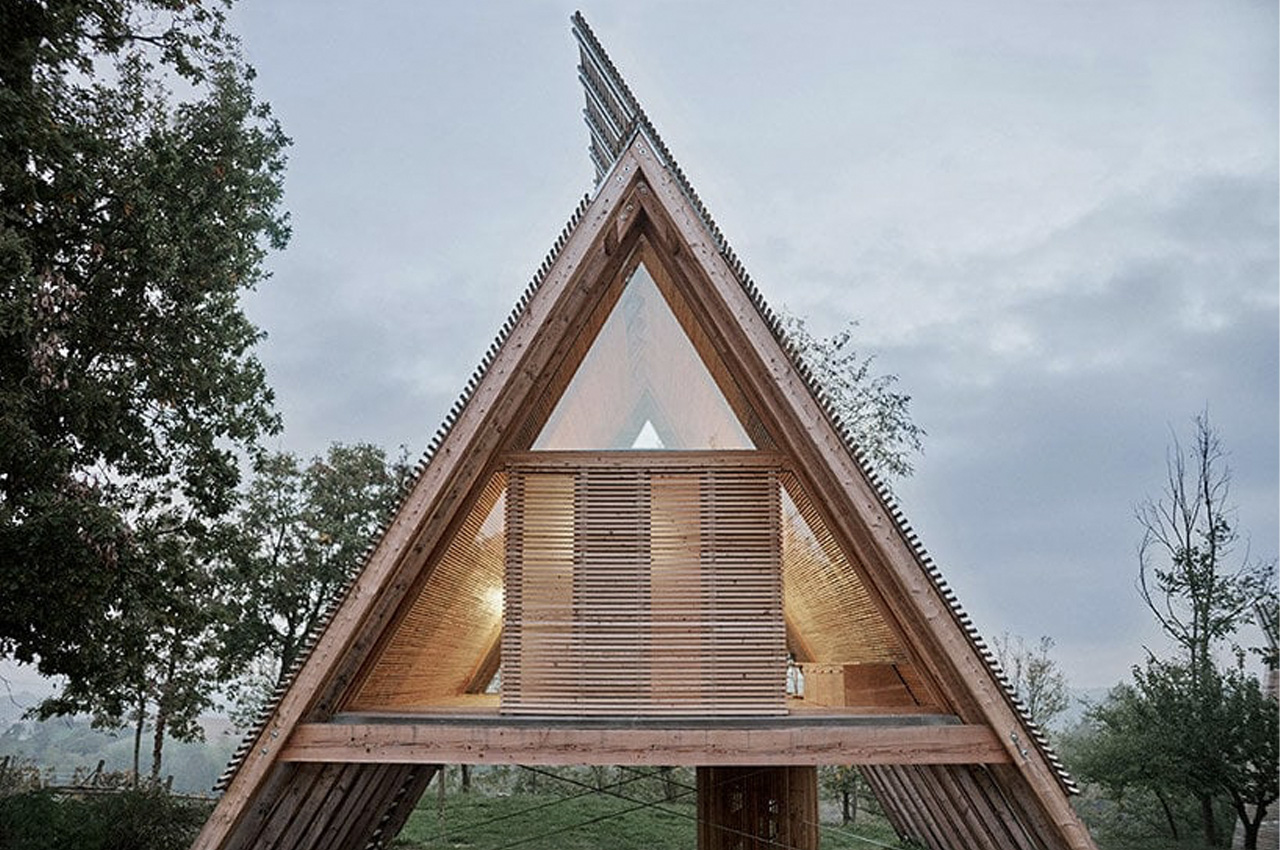
The cabins are an attempt on the part of Atelier LAVIT to create a collaboration between architecture and nature. The three cabins function as private suites, while the fourth structure serves more as a common space. It includes a large terrace, a generous kitchen with a massive table. This common structure is a gathering area for guests to sit and chill together, interact and engage with one another, and build conscious connections. Guests of the other three suites can partake in social interactions here.
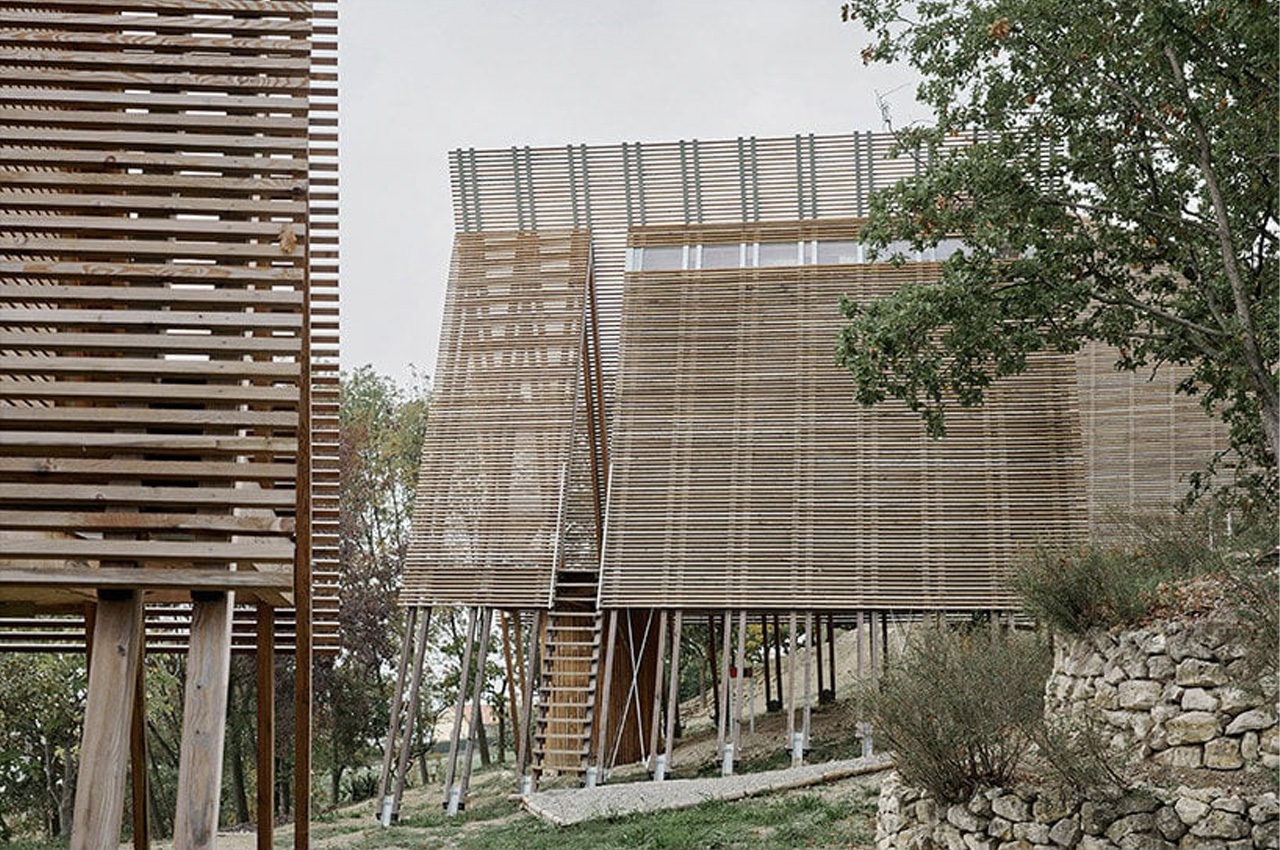
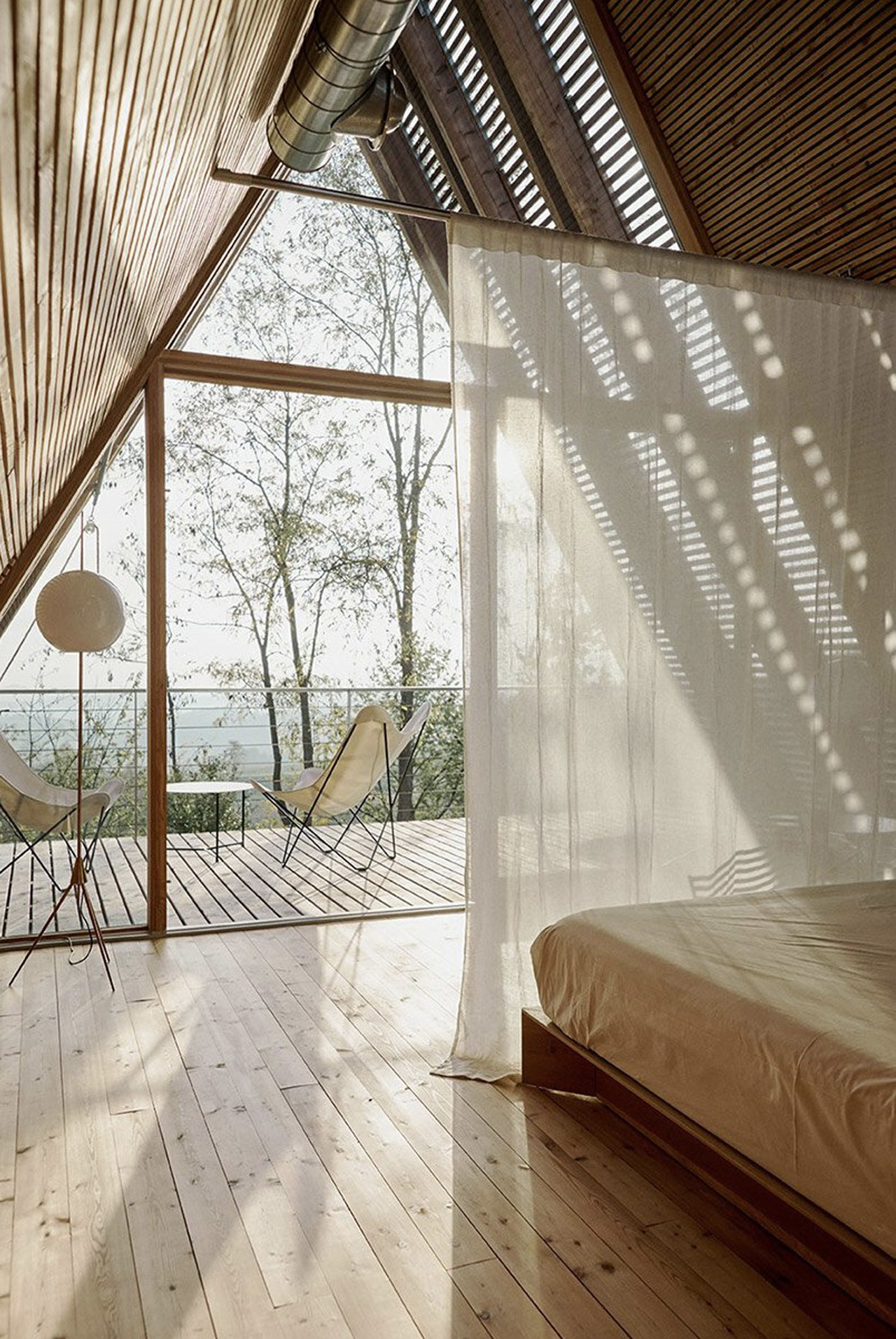
The three suites feature an open-plan layout, accompanied by a cozy breakfast nook, and stunning views of the surroundings. The beautiful location makes for a great panoramic view from within the rooms. There is an adjacent deck that leads to the sleeping section, and a bathroom that is subtly tucked away at the back of the suite. What’s interesting about the suite is that there is only one door, which leads to the washroom, while the rest of the space is left internationally door-less, creating an open and free-flowing space that holds an air of continuity and consistency. However, the studio managed to gracefully pull this off, without compromising privacy in the least. The suites still hold a distinguished air of privacy and seclusion. “The lodges weren’t designed as closed volumes from which the openings were subtracted but as a space created by three inclined surfaces, following the Japanese logic of working on layers,” said the studio. The stunning cabins camouflage with nature, creating a peaceful and ethereal space.
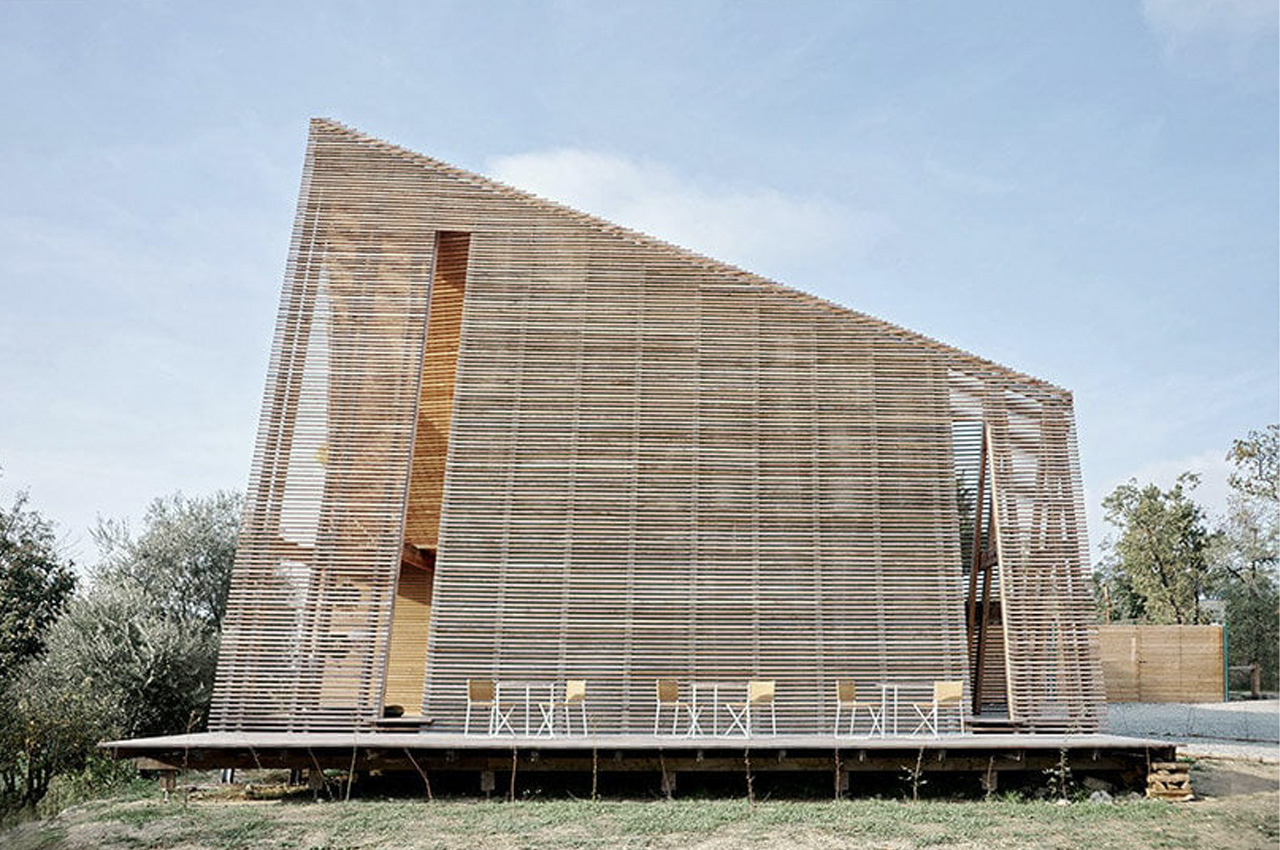
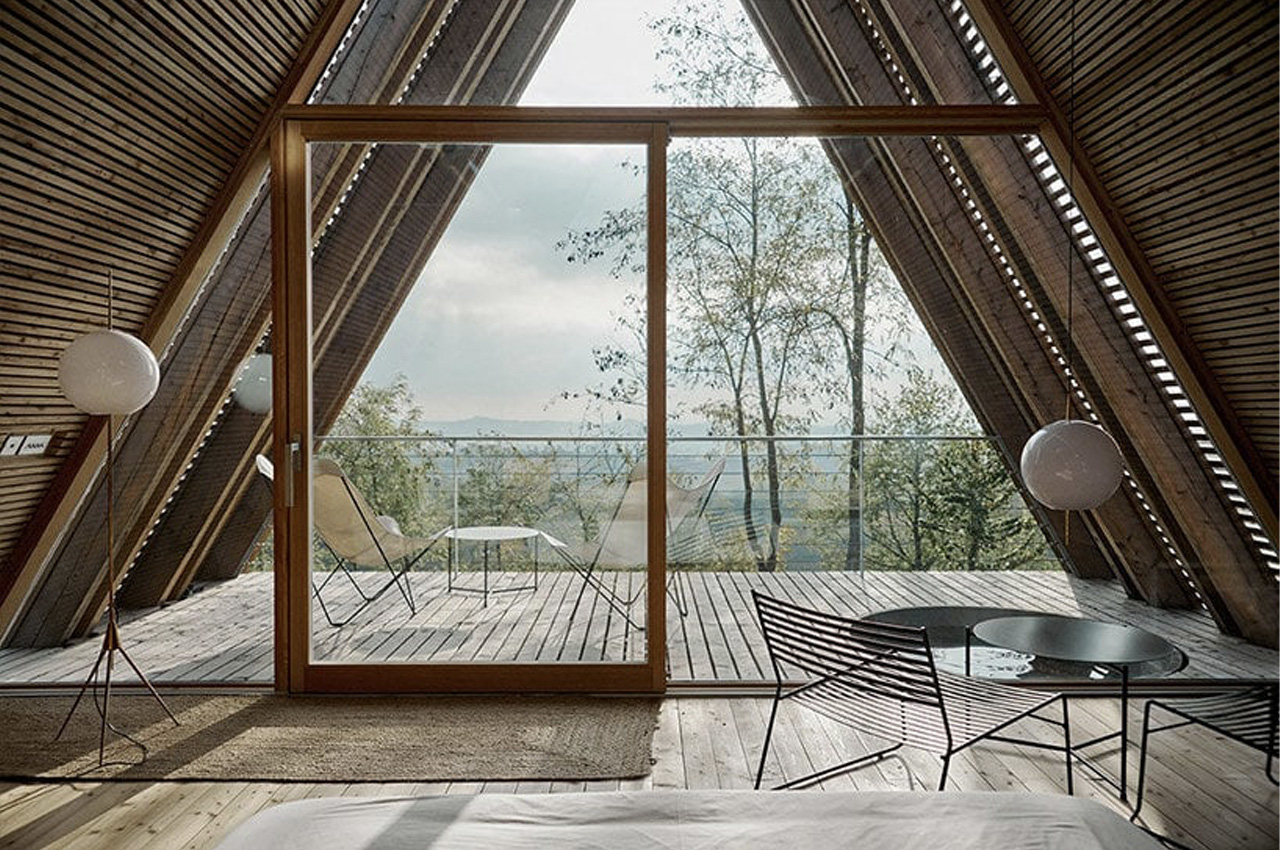
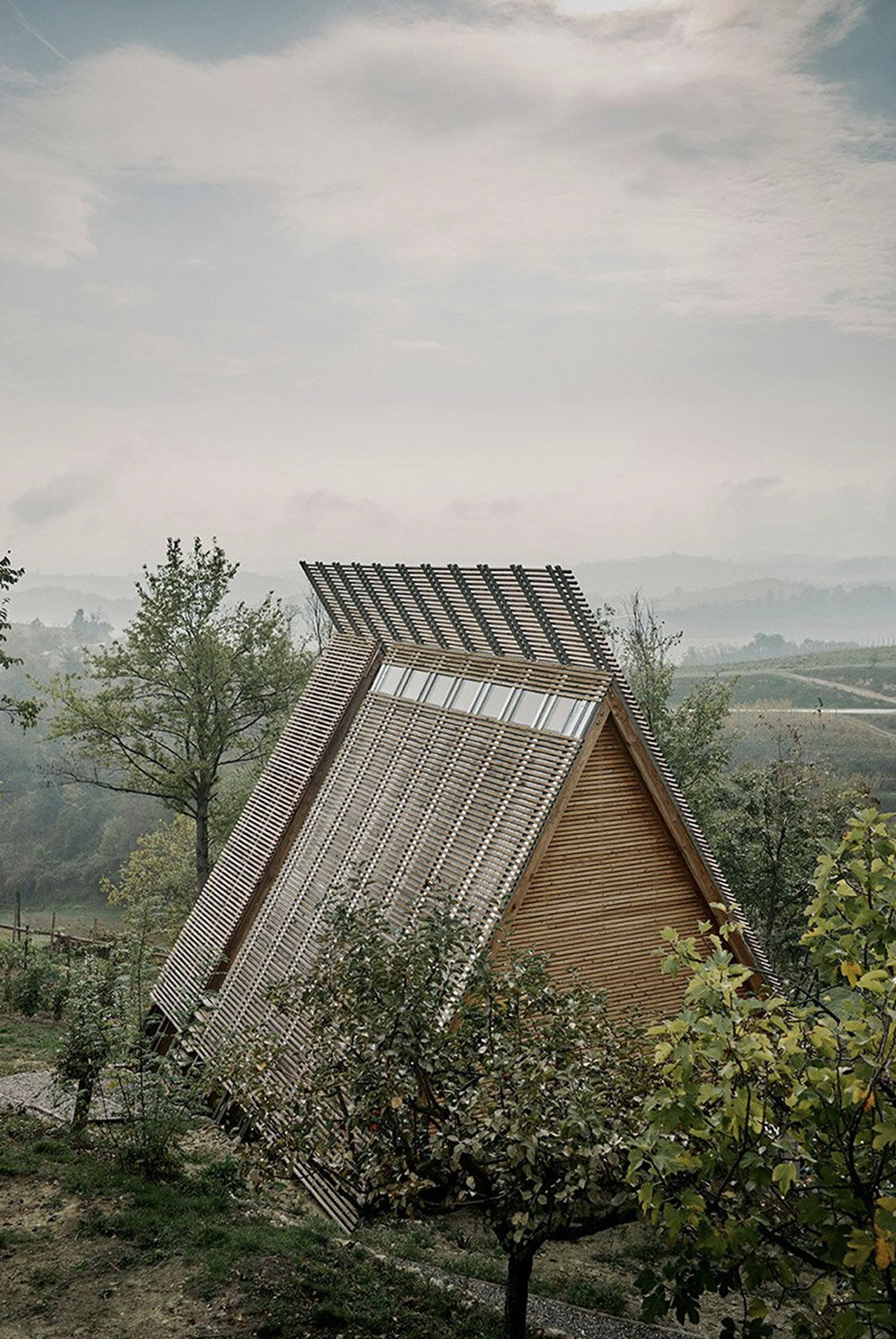
The post These A-frame eco-hotel cabins are tucked away in the vineyards of Italy first appeared on Yanko Design.
